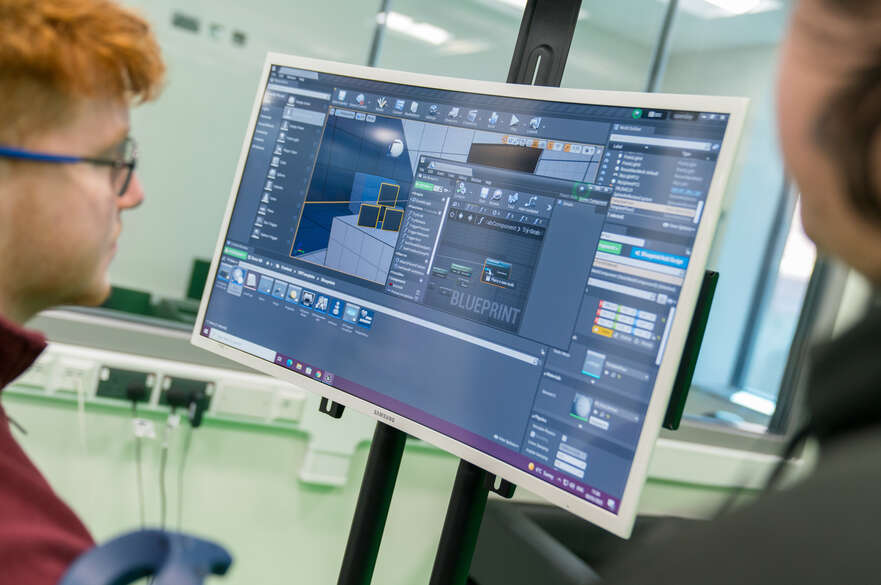
Transformative Technologies to
Tackle Health Inequalities

The Transformative Technologies to Tackle Health Inequalities theme focusses on the co-design of enabling technologies to promote physical and mental health. Here, the consortium supports developments in tools, technologies and approaches that enable researchers to push the boundaries of scientific discovery by advancing the frontiers of bioscience research and using co-design techniques to engage people who experience health difficulties and inequalities.
Our partner universities bring expertise in multidisciplinary and international translational science, including significant links with regional NHS Trusts, and research centres including the British Heart Foundation Cardiovascular Research Centre, Diabetes Research Centre, Centre for Ethnic Health Research, and National Institute for Health and Care Research East Midlands Applied Research Collaboration.
Another key partner of our consortium is the Medical Technologies Innovation Facility (MTIF), which provides a bridge between academia and commercial industry, to enable the acceleration of innovative medical technologies, improve the quality of patient care and create a lasting legacy in Healthcare.

Traditional mental wellbeing assessment methods require people to be aware of their wellbeing status and seek help which can be challenging for those from a range of underserved groups or those experiencing health inequalities. For example, individuals with intellectual disabilities can often experience mental wellbeing challenges, but these are frequently overlooked, diagnostically overshadowed, or classified as challenging behaviour. Some face additional challenges in expressing their emotions, correctly interpreting social situations and predicting the behavioural consequences of specific actions. These challenges often result in a significant impact on an individual’s likelihood of engaging with mental healthcare systems. These populations can also experience clinical significant symptoms of ageing at a relatively early age, where timely intervention may reduce risks of dementia.
In response, this theme supports research to understand how inclusive and participatory co-design techniques and principles can be used to engage people who experience health inequalities, including those with intellectual disabilities, autism and young people lived experience of mental ill health in designing tangible technologies, virtual environments, social robots, games, that at their core harness emotion AI.
Members of our consortium comprise multidisciplinary researchers including neuropsychologists, experts in explainable AI and Machine Learning, researchers in mental wellbeing and immersive technologies, end user organisations, businesses, and third sector organisations that support the exploration how co-design can be used to support ageing and health across the life course, especially for vulnerable groups of people who experience health inequalities.